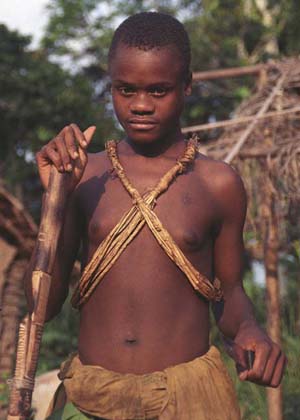It’s a country known by several names: Congo,
Congo-Brazzaville, Republic of the Congo. Technically speaking, this probably
should’ve went in the R section, but I put it in the Cs because I’ve always
just called it Congo. I put its neighbor with a similar name, Democratic
Republic of the Congo, in the Ds section, so I think we’ll get to it in
November.
Located in central Africa on the Atlantic coast, this
rain-forested country is surrounded by Gabon, Cameroon, Central African
Republic, Democratic Republic of the Congo, and the small exclave of Angola
called Cabinda. It lies in sub-Saharan Africa along the equator, but I’ve been
watching the weather there this past week, and I’m amazed that their weather
isn’t much different than ours in Indianapolis (although we’ve been having
slightly unseasonably cool weather this week – it’s been gorgeous!): in the mid
60s at night, mid 70s-lower 80s during the day.
Originally inhabited by various Bantu-speaking
tribes and Pygmy tribes, the Portuguese and then the French “discovered” the
country while traveling down the Congo River, a major river system in this part
of Africa and the second-longest in Africa itself. Through colonization, the land went through many name
changes: Congo Colony, French Congo, Middle Congo, French Equatorial Africa.
They gained independence from France in 1960, taking the name of Republic of
the Congo and quickly joined ranks as another one of the world’s
socialist-leaning-into-communist countries (under the name People’s Republic of
the Congo). While there were coups and shift changes in their politics, the
Congolese wouldn’t fully come to the fight for democracy until the late 1990s.
The capital city is Brazzaville, which lies on the
Congo River. Just across the river is Kinshasa, the capital city of Democratic
Republic of the Congo. I wondered if these were the two closest world capital
cities – coming in at nearly a mile apart – but I think Vatican City and Rome
would actually be the closest, since one is inside the other. The city of
Brazzaville is named after an Italian-French explorer by the name of Pierre Savorgnan
de Brazza. It’s certainly the largest city, and only one of few other cities of
any significant size. About 70% of Congolese live in urban areas. (It’s a
sister city to Olathe, Kansas, by the way.)
Because the French controlled the area for so long,
the national language is French, but they also utilize several local languages
and dialects as well. Linguistically speaking, this country has around 62
languages that are spoken. The local languages of Lingala and Kituba are used
as a lingua franca (both of which are related to Kikongo, the most widely
spoken language). The Kongo are the largest ethnic group, making up nearly half
of the population (whose namesake probably lends itself to the name of the
river, which also is the basis for the name of the country). Pygmies only make
up about 2% of the population, but remain a watch group as a victim of human
rights violations. Another effect of the French can be seen in the fact that
most of the Congolese are followers of Christianity, with nearly half the
population Catholic and over 40% Protestant.
There are a lot of problems concerning the
environment due to deforestation, water pollution (along with poor sanitation
lead to greater spread of communicable diseases), and air pollution from
vehicle emissions. Outside of the cities, farmers try to survive mostly on
subsistence farming and some try their hand in the oil industry. It’s still not
that much. Their economy and their government experience frequent fluctuation and
widespread poverty, and rely on foreign aid for help. Infant and maternal
mortality is a problem, as is AIDS and the high risk for diseases such as
hepatitis A, typhoid fever, malaria, African sleeping sickness, and rabies.
There aren’t enough doctors, especially in the rural areas. Their life expectancy is only 58 years
old, which both of my parents have passed. Education is an ongoing problem. Children are required to attend until the age of 16, but there are always costs involved, especially for those who want their kids in a better school, and many cannot afford it. Teacher training is also insufficient in many cases, so kids don't always get the best education, especially for those who are poor.
I think my own personal challenge in this is trying
to do searches for Republic of the Congo and not come up with results for
Democratic Republic of the Congo. It’s been slightly frustrating so far. But
not too bad. I did find some recipes, so I’m pretty excited about that (I did
have to settle for a tart instead of an actual bread, but I’m certainly ok with
that. Who complains about tarts?). I have a feeling this country will amaze me
in a quiet way.
Up next: holidays and celebrations





No comments:
Post a Comment